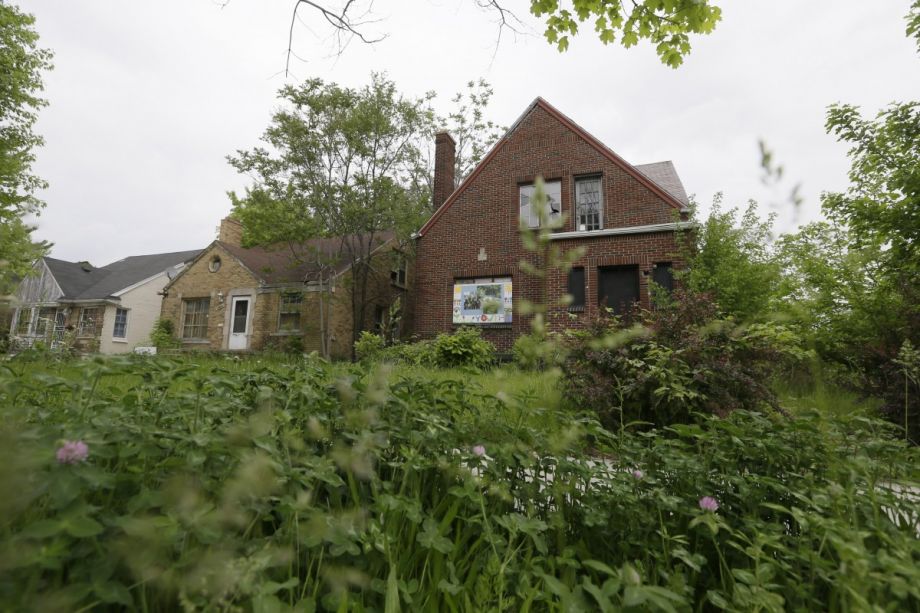With property taxes accounting for up to 75 percent of local government revenue, everything depends on getting them right.
It’s the pool of funds we depend upon to support everything from infrastructure to schools to trash pick-up. And, according to Sara Toering, the Center for Community Progress’s general counsel, property tax problems are a root cause of “every aspect of distress in a given neighborhood,” from vacancy to poor public health to crime.
That’s why Toering is advocating for equitable, efficient and effective property tax programs. Toering will be talking about tax foreclosure reform at Community Progress’s Reclaiming Vacant Properties conference in Detroit this week.
Most property tax systems were designed decades ago, and their datedness is more than a curiosity. Toering has seen systems that are still based on agricultural terms; penalties for a late payment might involve having one acre foreclosed upon on a 200-acre farm. But it will take more than a revision to bring property tax practices into the new century.
“It’s very important to consider equity at the front end of the process,” Toering says. That begins with assessment: Taxes should be at a reasonable level with adequate carve-outs, or exemptions, for vulnerable populations, such as the elderly, veterans or people with low incomes. Hardship payment plans should be seamless, designed so that a homeowner who loses a job or is otherwise temporarily behind can negotiate a good-faith plan. But hardship payment plans aren’t one-size-fits-all. The language should be adjusted to fit the unique needs of the community, whether it is San Francisco or Macon, Georgia.
Increasingly, Toering says, communities are using data to make clearer determinations on what local hardship looks like and what an appropriate payment plan should be. For example, data can show the rate of tax delinquency by neighborhood, and how many years that properties have been delinquent. This information sheds light on where the “circuit breakers” should be in the system. If the data show that a community doesn’t have many elderly people living in tax-delinquent homes, but it does have a huge military population, then that points to where the community should target policies for hardship, exemptions and other equity measures — including, possibly, tax forgiveness.
If, for all that, a property continues to fall behind, Toering says that delinquent taxpayers must “have every opportunity to pay up their taxes” and remain in their homes, even as they receive fully constitutional notice about pending foreclosure developments. They also must have the right to due process where they can challenge bills that may be faulty, and the government should investigate possible errors. In many cases, says David J. Szymanski, chief deputy treasurer of Wayne County (which includes Detroit), this process clears up misunderstandings, like a tax payment mailed to the wrong department.
One powerful way to get people up-to-date on taxes is by leveraging HUD’s Hardest Hit funds. Here’s how it works: Every state was allotted these funds in the wake of the mortgage crisis; Michigan got a little more than $500 million to help people with their mortgages, administered by the Michigan State Housing Development Authority.
In Detroit, the city once known for having the highest level of owner-occupied homes in the world, the national foreclosure crisis ripped through like a natural disaster. But a large percentage of foreclosed properties were not owner-occupied, and many homeowners didn’t have mortgages — their houses were inherited or paid off long ago. Instead, they owed far more than they could pay in delinquent property taxes, up to $18,000. So, Szymanski, who’s on Toering’s panel at the Community Progress conference this week, got approval to make Hardest Hit funds available to delinquent taxpayers who own and occupy their home, have suffered financial hardship, and are expected to be able to pay their regular taxes once they are caught up.
The Michigan program, which went into full effect in 2013, is called Step Forward. Nowadays, Szymanski is spending Sunday mornings talking it up in churches and on local television shows. To date, over $50 million in delinquent property taxes have been paid on behalf of over 5,000 families in Wayne County, mostly in Detroit. In one instance, back taxes “somewhere in the range of $30,000” were paid through the program. Step Forward is not a gift; it’s a five-year loan — with zero percent interest. And for each year that the recipient continues to live in their home, 20 percent of the loan will be forgiven.
This unusual use of Hardest Hit funds has gotten little notice, even from other local governments. “I just assumed when we got permission to do that, everybody heard it was possible,” Szymanski says. “I’m disappointed in myself because I didn’t spread the word earlier. I’m thinking at this [Reclaiming Vacant Properties] conference, we’ll be able to get the word out to people across nation: ‘Look at what we’re doing here in Michigan.’”
That’s the equity side of things. Then comes efficiency.
Toering says “efficiency” is a tricky value in foreclosure because, on one hand, a lengthy process protects vulnerable homeowners, giving them every chance to pay before losing their house. On the other hand, there are frequent instances where foreclosure on a vacant or abandoned property drags on for “years and years and years,” harming the neighborhood, keeping a responsible owner from the opportunity to rehabilitate it, and starving local government of needed revenue. That’s an inefficiency that serves no one. In Michigan, when owed property taxes far exceed the fair market value of a property and no owner presents him or herself as willing to progress on those taxes, land bank statutes in many communities can force a transfer of the property to a responsible owner — including, possibly, the land bank.
Misguided attempts to improve effectiveness also thwart city hall’s best intentions. Cash-strapped governments increasingly try to make their budgets by selling portfolios of delinquent tax liens in bulk to private third parties. (Michigan is one of the states that do not do this.) “In our experience throughout the country,” Toering says, this process “ends up causing a whole new level of problems.” That’s because the bundles of tax liens include the lowest-valued vacant and abandoned properties alongside higher-value properties that are likely to be snapped up. Private buyers have an interest in foreclosing on high-value properties, because they are most likely to be redeemed and make money. Meanwhile, the vacant and abandoned properties that the buyers also purchased sit in limbo, festering and forgotten, low on the priority list for the buyer and actively harming the community. Because the local government transferred power to the buyer, it has no way to turn the property over to someone willing to take responsibility for it. “We’ve lost our leverage point,” Toering says.
Rather than lose this control, she recommends that local governments eschew third-party buyers and instead, if needed, hire a servicer to more effectively manage the city’s delinquent property taxes. Another important tactic for city hall: Bring on a real estate lawyer. While many governments partner with litigators and human resources attorneys, there is a dearth of legal expertise in real estate. Working with great lawyers who understand the local property market will help a community make solid urban planning choices.
Community members and public advocates can also be part of the coalition for foreclosure reform by, for example, pulling together data on the links between tax delinquency and fallen property values, or fire and police calls to a particular neighborhood. Doing so helps build the case for why intelligent, intuitive and inclusive property tax systems are essential for community health — not just by generating sustainable local revenue, but by supporting local people who are in need, house by house.
“Probably the biggest misconception about foreclosure,” Szymanski says, “is when people say, ‘my situation is hopeless.’”
This post is part of a 10-part series underwritten by the Center for Community Progress. Read all posts in the series here.

Anna Clark is a journalist in Detroit. Her writing has appeared in Elle Magazine, the New York Times, Politico, the Columbia Journalism Review, Next City and other publications. Anna edited A Detroit Anthology, a Michigan Notable Book. She has been a Fulbright fellow in Nairobi, Kenya and a Knight-Wallace journalism fellow at the University of Michigan. She is also the author of THE POISONED CITY: Flint’s Water and the American Urban Tragedy, published by Metropolitan Books in 2018.
Follow Anna .(JavaScript must be enabled to view this email address)















